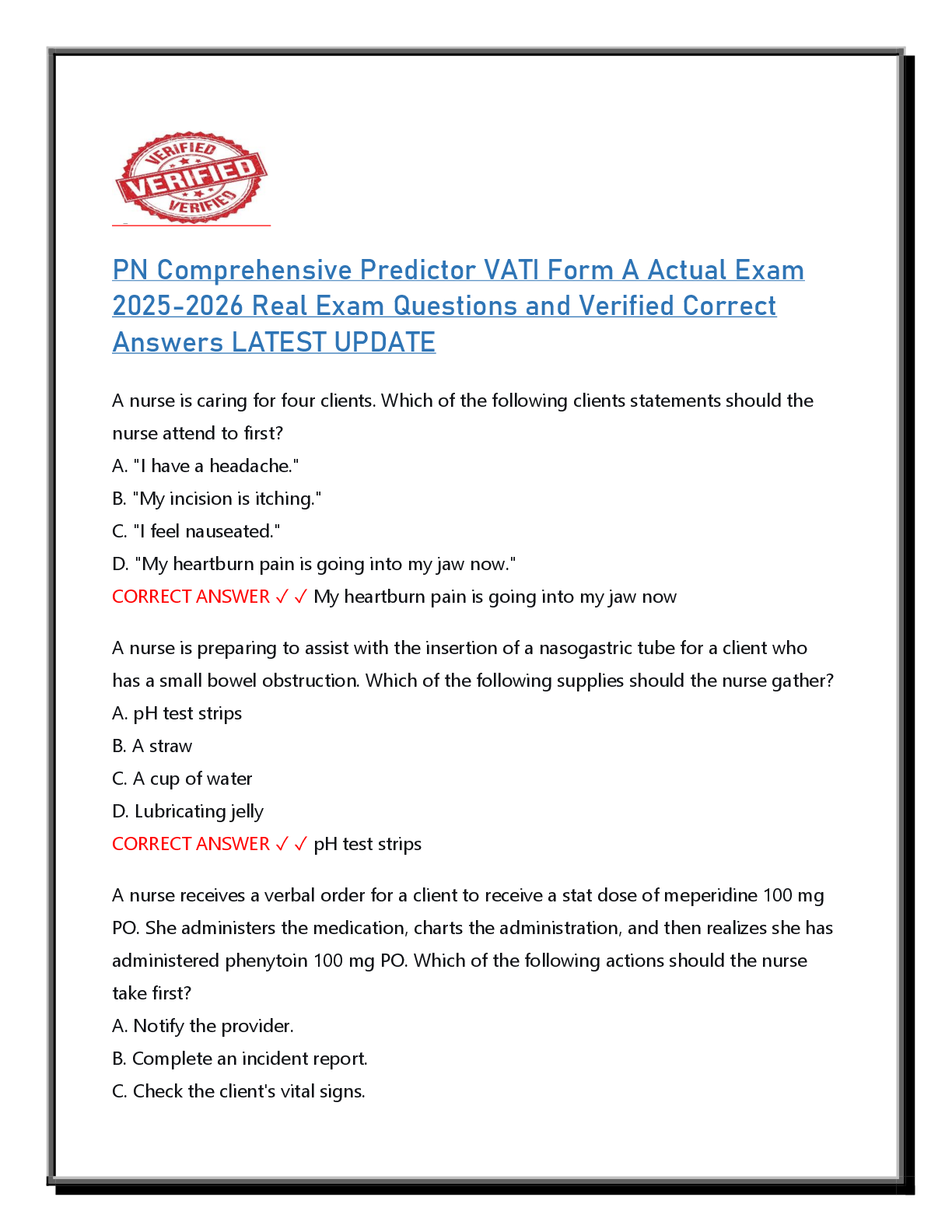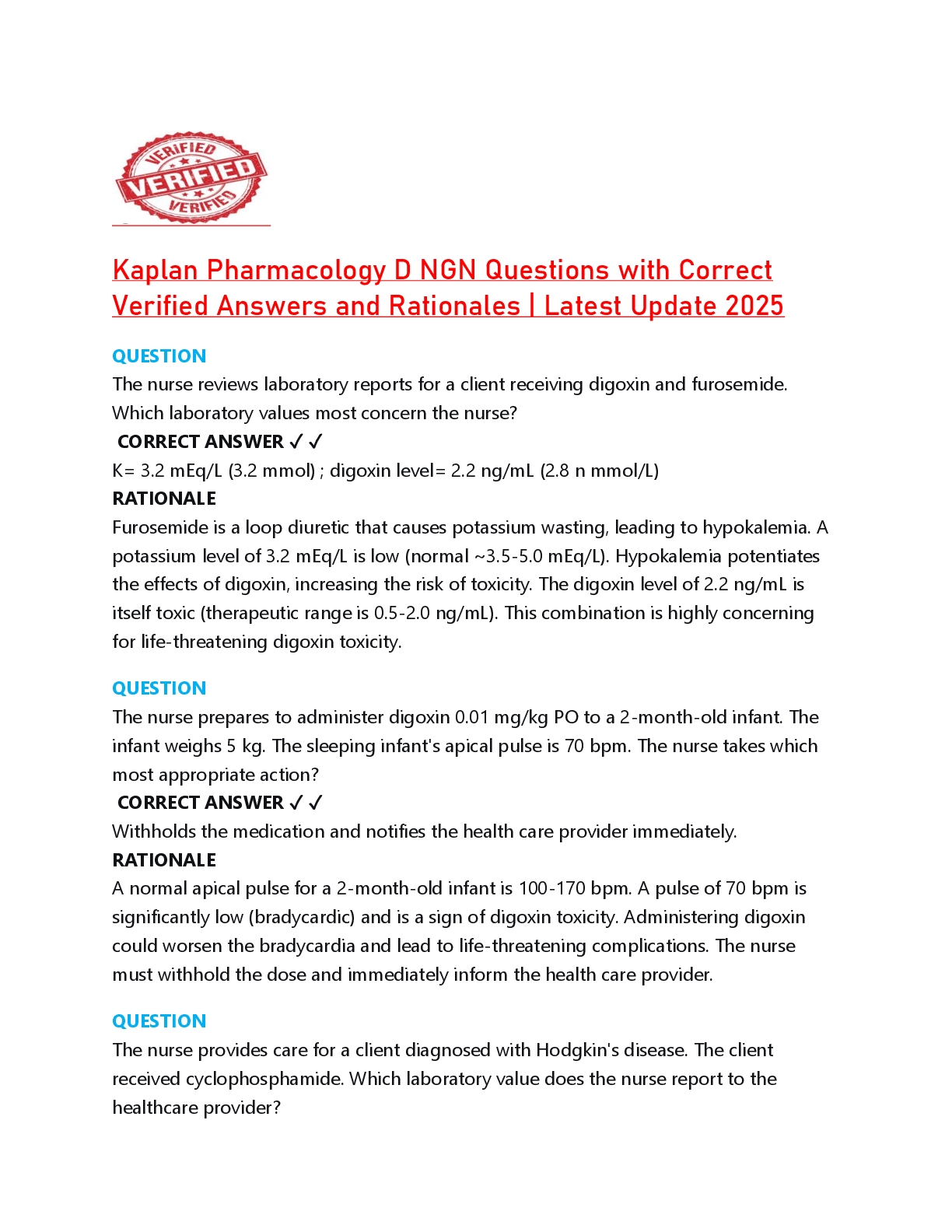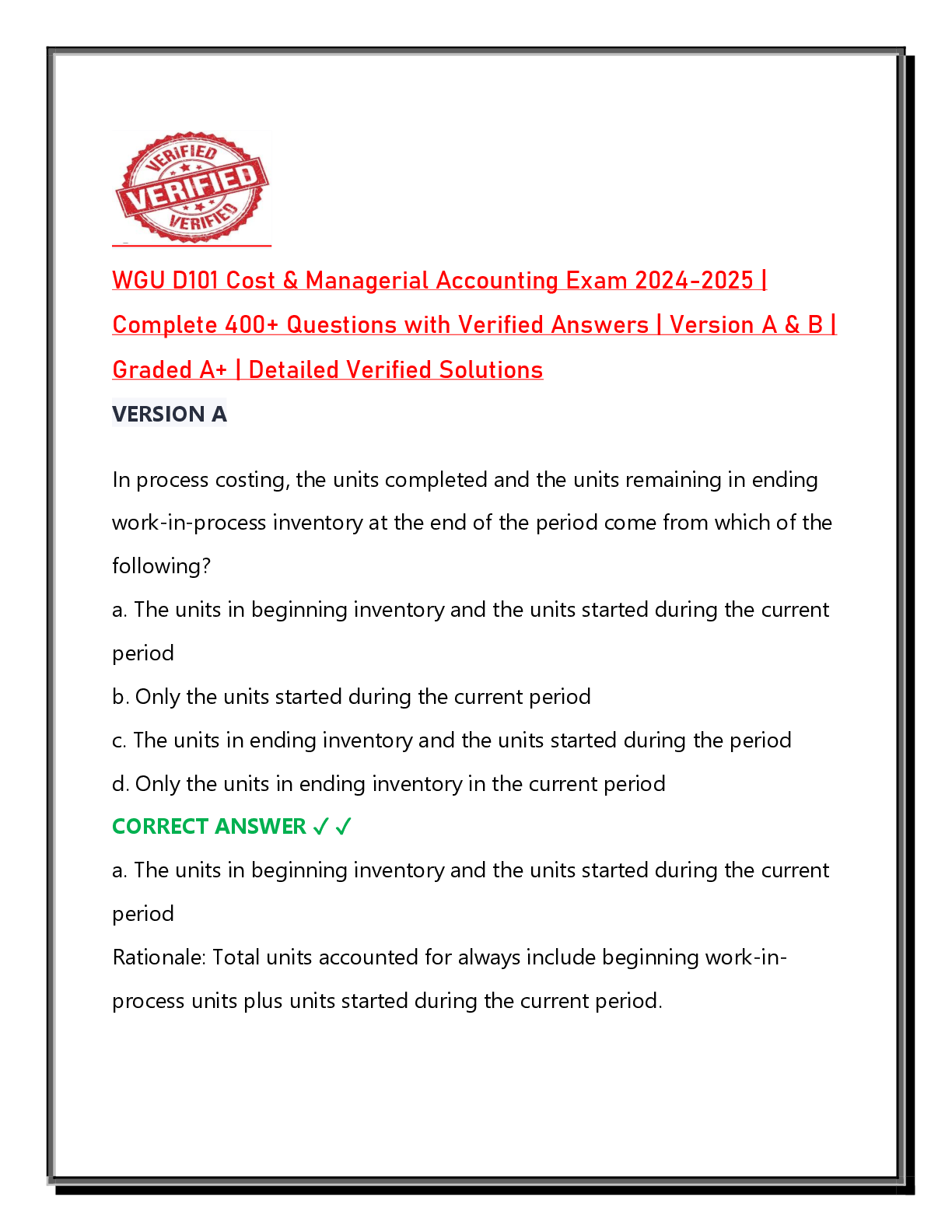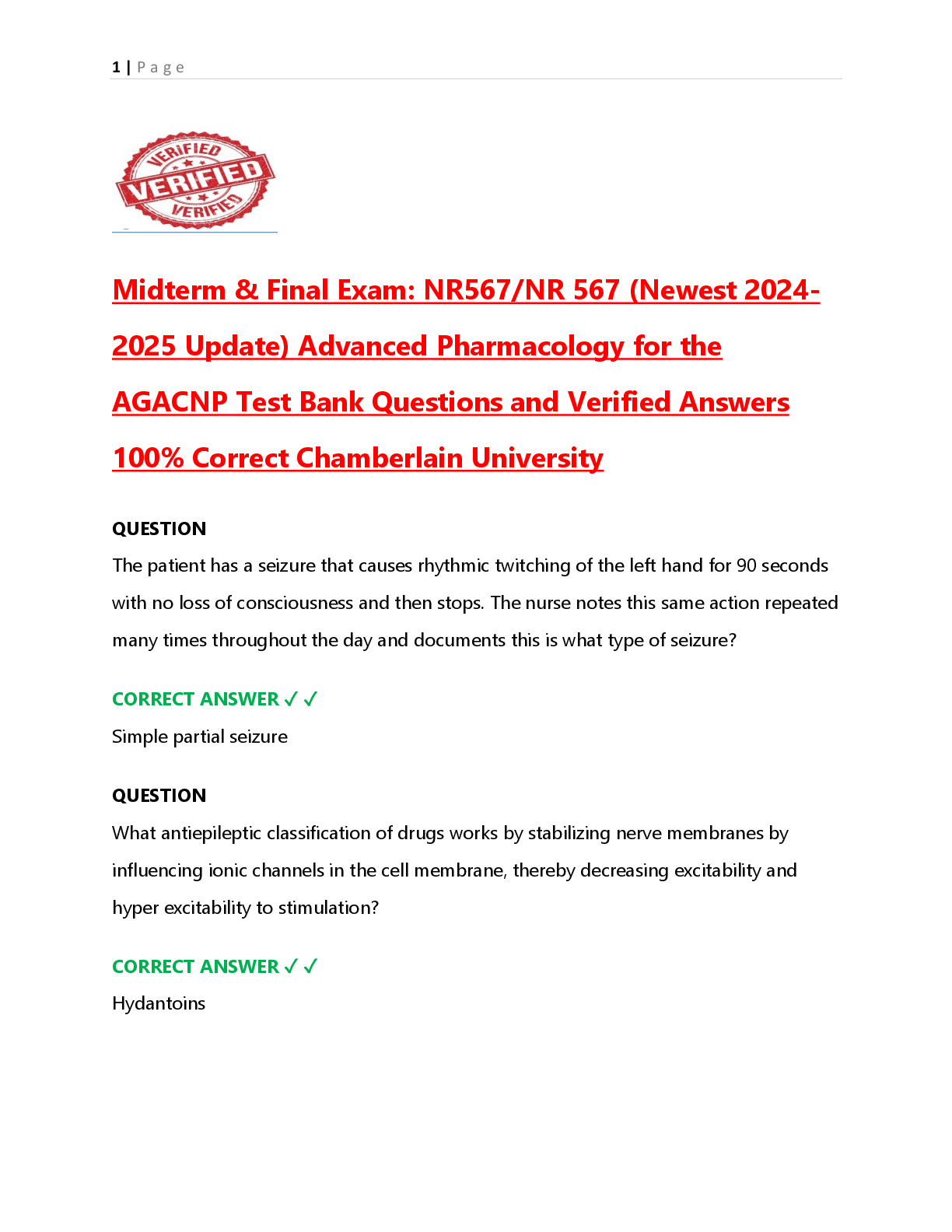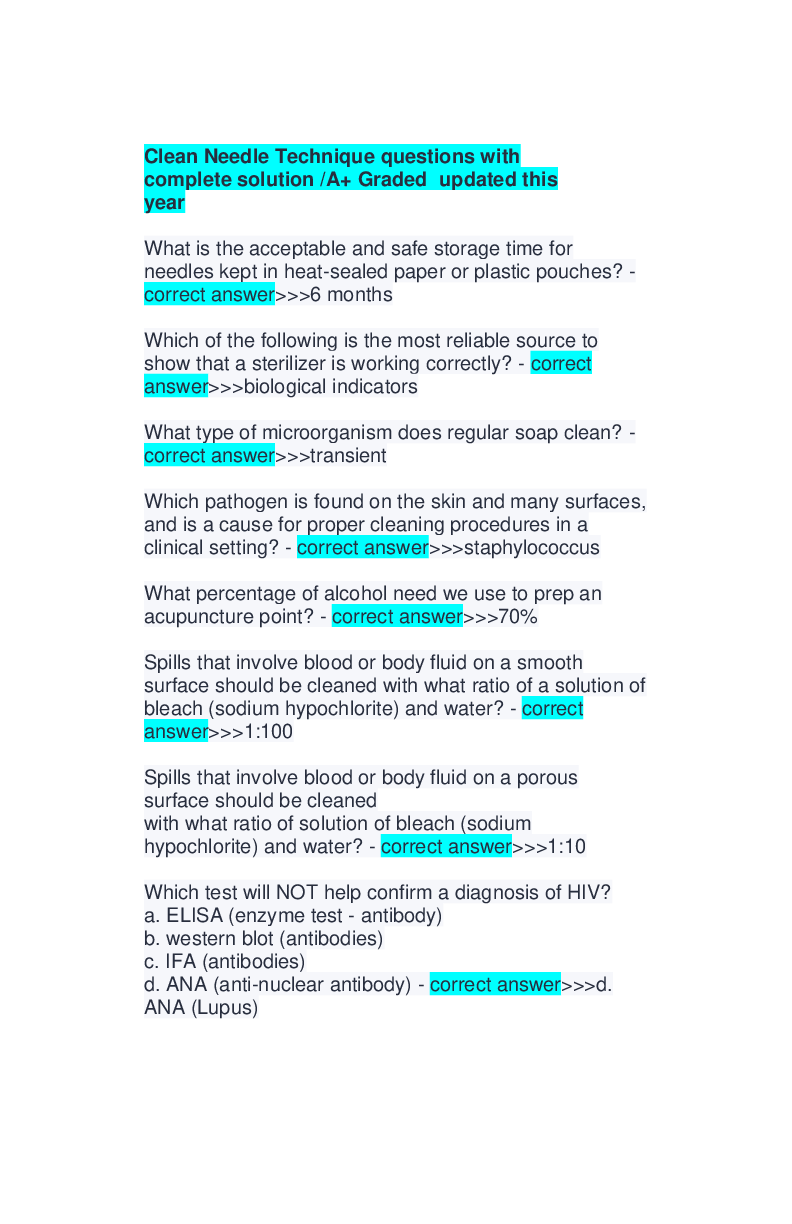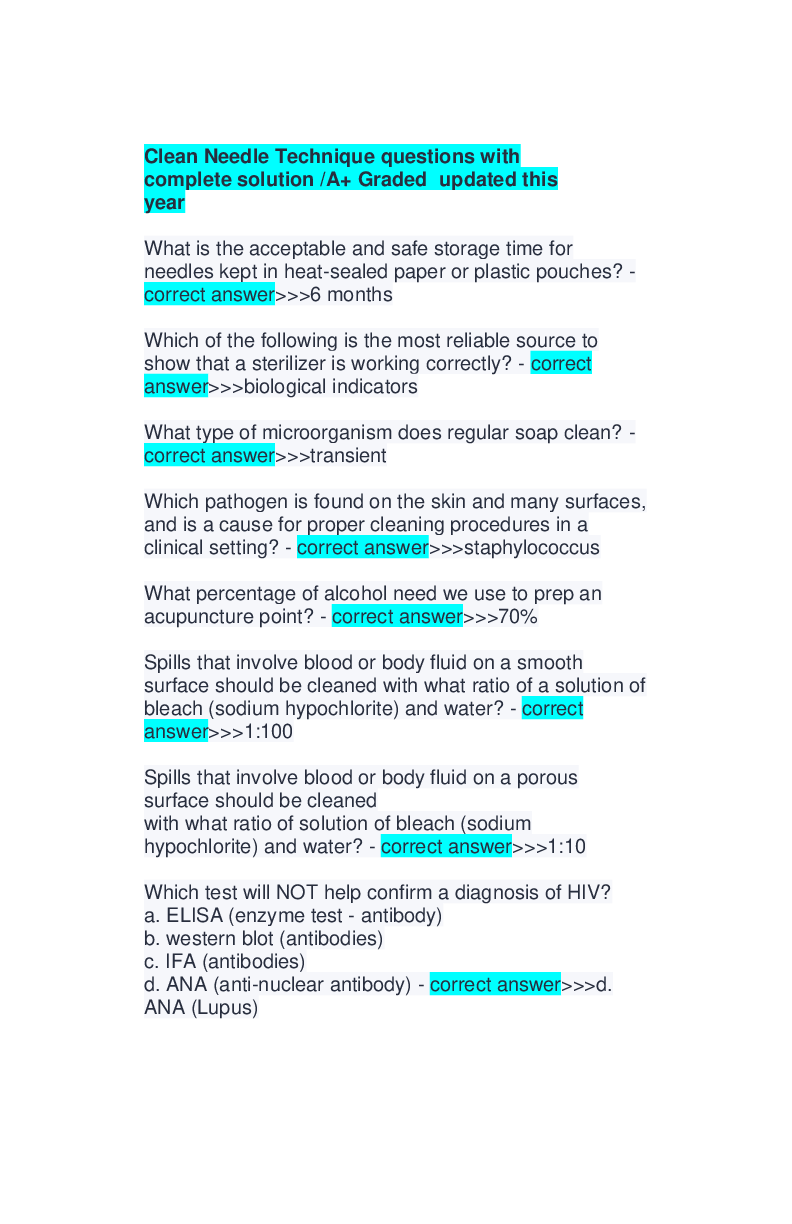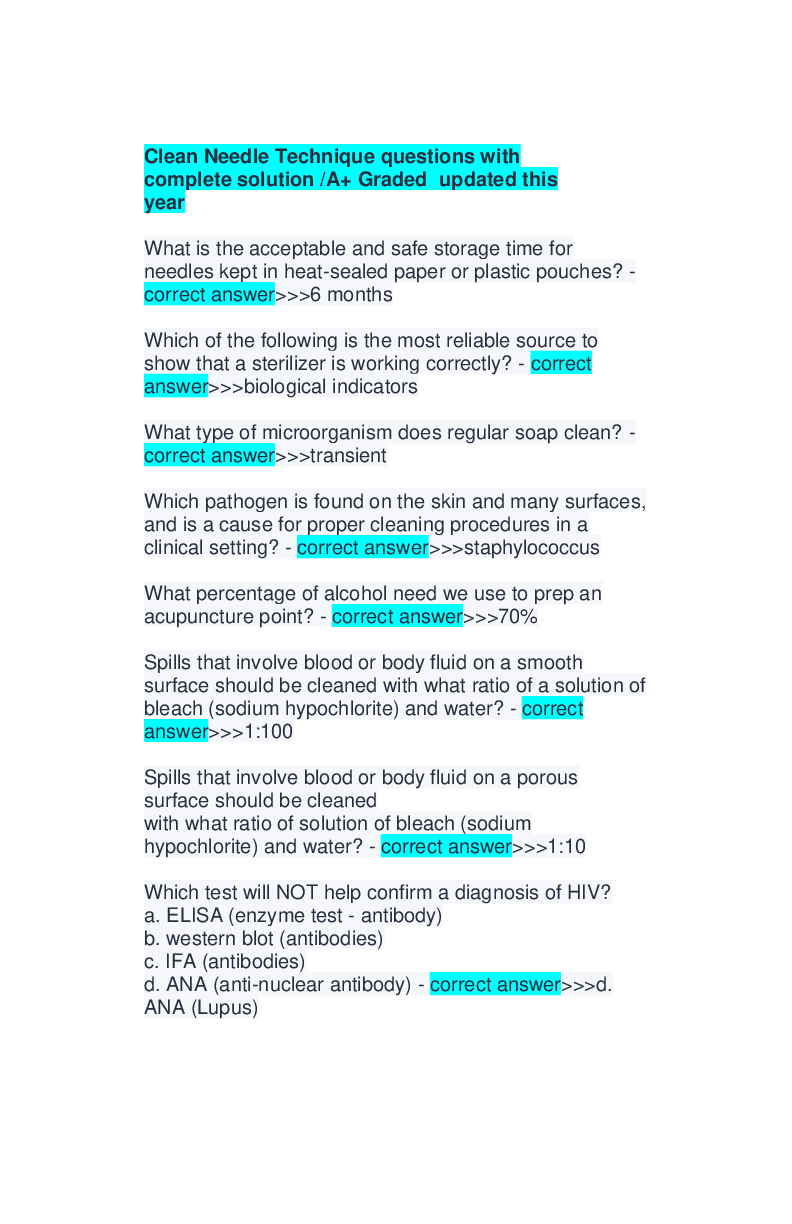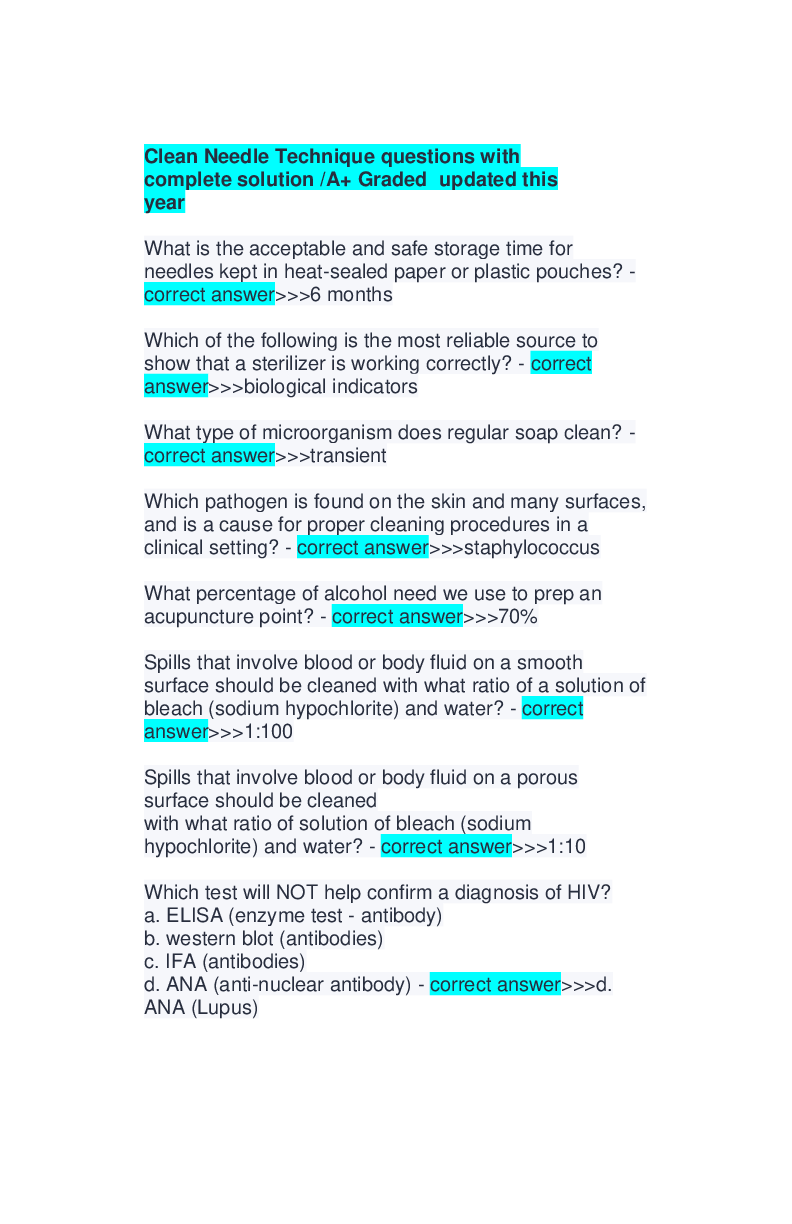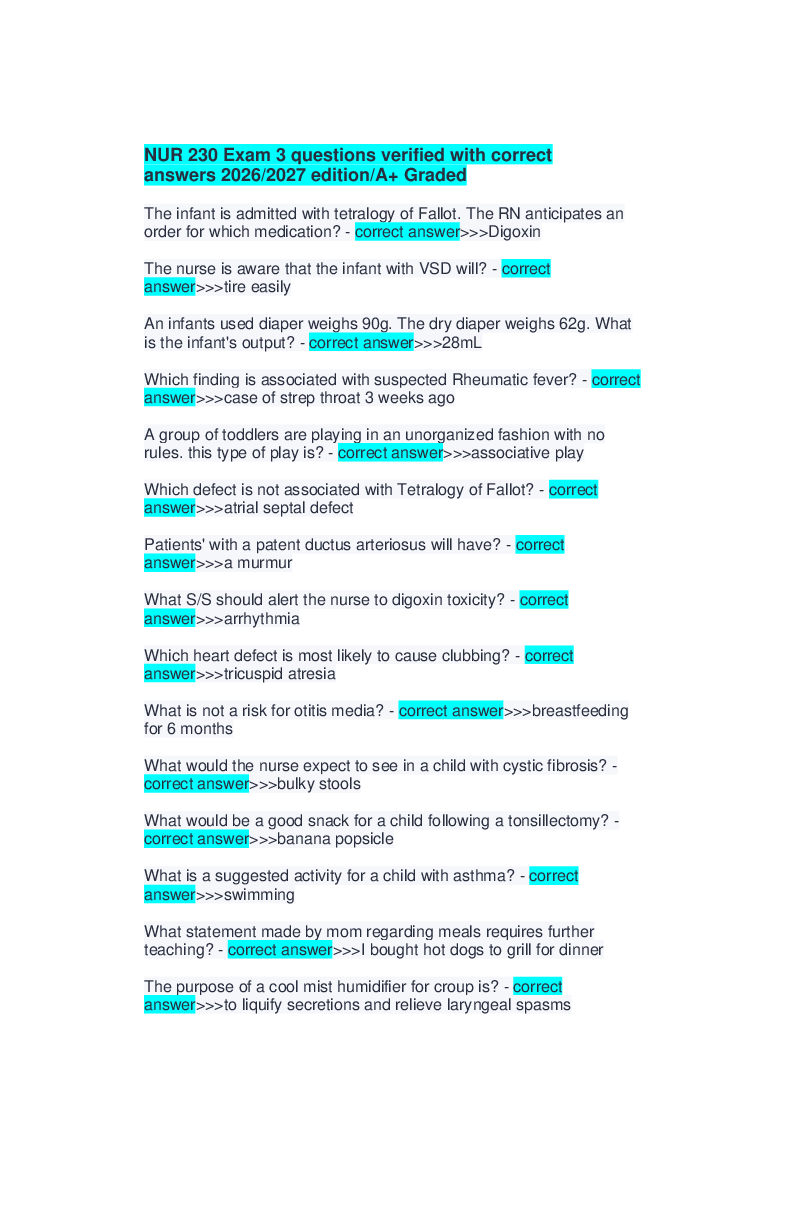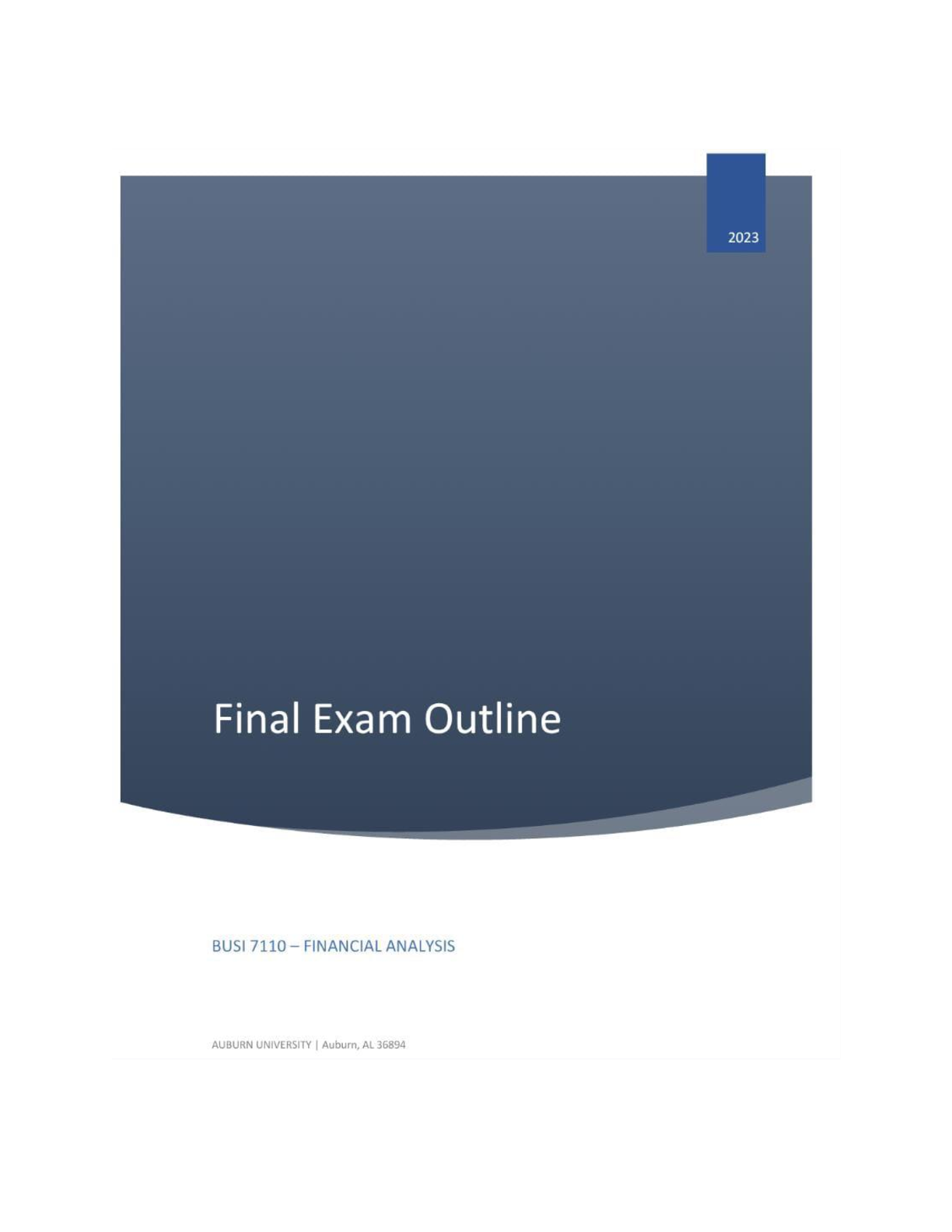Psychology 298-chapter 1 exam QUESTION 1 1. Students who took part in the Graves and colleagues study reported more distress when they imagined interacting with a person with schizophrenia than when they imagined interac
...
Psychology 298-chapter 1 exam QUESTION 1 1. Students who took part in the Graves and colleagues study reported more distress when they imagined interacting with a person with schizophrenia than when they imagined interacting with a person who did not have schizophrenia, and heart rate changes also suggested they were experiencing the imagined interactions with the patients as being more unpleasant than the interactions with the nonpatients. What did this reaction and the study itself suggest? that students who imagine having experiences with people with mental disorders will eventually become more comfortable interacting with people with schizophrenia that people may tend to avoid those with mental illness because the psychophysiological arousal these encounters create is experienced as unpleasant that people are genetically predispositioned to react negatively to people with mental disorders that people exhibit more compassion for those who have mental disorders 0.5 points QUESTION 2 1. In ABAB research design, what happens in the first B phase? A patient is dismissed. A baseline is collected. A treatment is withdrawn. A treatment is introduced. 0.5 points QUESTION 3 1. Vic wants to do a sampling study of people with panic disorder. His sample should focus on the disorder, not the demographic characteristics of the individuals. be representative of the larger population of people with the disorder. include a wide variety of abnormalities. include everyone in the population with the target abnormality. 0.5 points QUESTION 4 1. Jane has been dealing with alcoholism for most of her adult life. Her illness is acute. pervasive. chronic. degenerative. 0.5 points QUESTION 5 1. Dr. Williams collected information from his patient about his earlier life to determine what might have caused his behavior. He was conducting ________ research. early outcome retrospective predeterminate longitudinal 0.5 points QUESTION 6 1. On a correlation scale ranging from 0 to 1, a correlation of .98 would represent almost no correlation. a very high correlation. a statistical impossibility. an error in the methodology. 0.5 points QUESTION 7 1. The fact that karokari is considered acceptable in Pakistan but not in the United States illustrates the influence of which of the following on whether something is defined as abnormal behavior? mental illness. prevalence. level of depravity. culture. 0.5 points QUESTION 8 1. Parking illegally isn’t usually considered abnormal behavior even though it violates the law. Why? Not enough people park illegally for it to be considered abnormal. Parking illegally is so statistically common that we tend not to think of it as abnormal. There is usually no penalty for parking illegally, and therefore, it is not considered abnormal. Many view the laws against illegal parking as unconstitutional. 0.5 points QUESTION 9 1. Seligman and colleagues determined that human depression is a reaction to uncontrollable stressful events in which one's behavior has no effect on one's environment. This is known as the loneliness response. learned helplessness. depression triggers. the depression reaction. 0.5 points QUESTION 10 1. Half of all people who suffer from depression delay seeking treatment until family members have them committed. for more than 6 to 8 years. for one year or more. for more than 10 years. 0.5 points QUESTION 11 1. Certain Native American tribes do not have a word that means ________, but that doesn't mean they don't experience it. fear depressed therapy schizophrenia 0.5 points QUESTION 12 1. Why might a researcher report effect size? to ensure that other scientists don’t plagiarize his research to ensure the study cannot be replicated to indicate the exact number of people who were affected by a research study to facilitate comparison of results across different studies 0.5 points QUESTION 13 1. Stays in inpatient facilities tend to be ________ than they were in the past. much shorter much longer about the same length slightly longer 0.5 points QUESTION 14 1. In an effort to measure the prevalence of mental illness in the United States, the ECA (Epidemiologic Catchment Area) study focused on sampling the entire American population. citizens of five metropolitan areas. citizens in three rural communities. citizens in the rural South. 0.5 points QUESTION 15 1. Sanya wants to study how people develop schizophrenia. She wants to study the ___________ of the disorder. etiology incidence prevalence epidemiology 0.5 points QUESTION 16 1. Dr. Smith wants to know how many new cases of schizophrenia have occurred during the previous 12 months. He is measuring the disorder's distribution. prevalence. incidence. frequency. 0.5 points QUESTION 17 1. Which scenario would most likely use direct observation as a research approach? A researcher weighs a rat before and after it has been left for an hour in front of a food source. A student counts how many students choose the chocolate or vanilla pudding. A doctor asks the child’s parent how long the child has had a fever. A teacher counts the total number of students who received As on their papers. 0.5 points QUESTION 18 1. ________ is the extent to which a study is methodologically sound, free of confounds or other sources of error, and able to be used to draw valid conclusions. External validity Internal validity The comparison group Compatibility 0.5 points QUESTION 19 1. Joshua has a doctorate and provides individual therapy for his patients a couple of times a week. Joshua is most likely a psychiatric nurse clinical social worker. psychiatrist. clinical psychologist. 0.5 points QUESTION 20 1. The problem with this form of research is that it is only relevant to the individual being described. case study self-report research natural observation 0.5 points QUESTION 21 1. The field of abnormal psychology is also called clinical psychology. social psychology. psychopathology. forensic psychology. 0.5 points QUESTION 22 1. The strength of a correlation is measured by the correlation coefficient. variable. response. effect. 0.5 points QUESTION 23 1. Kazdin points out that methodology is a compilation of practices and procedures, and also includes the methods or principles used for doing a particular kind of work. is an approach toward problem solving, thinking, and acquiring knowledge. does not consider the goals and objectives of the research. involves interviews, questionnaires, and observations. 0.5 points QUESTION 24 1. The most common individual DSM-IV disorder in terms of lifetime prevalence is specific phobia. alcohol abuse. major depressive disorder. conduct disorder. 0.5 points QUESTION 25 1. Most sciences rely on classification systems that require naming things. This naming system is called labeling. nomenclature. domains. diagnostic typing.
[Show More]
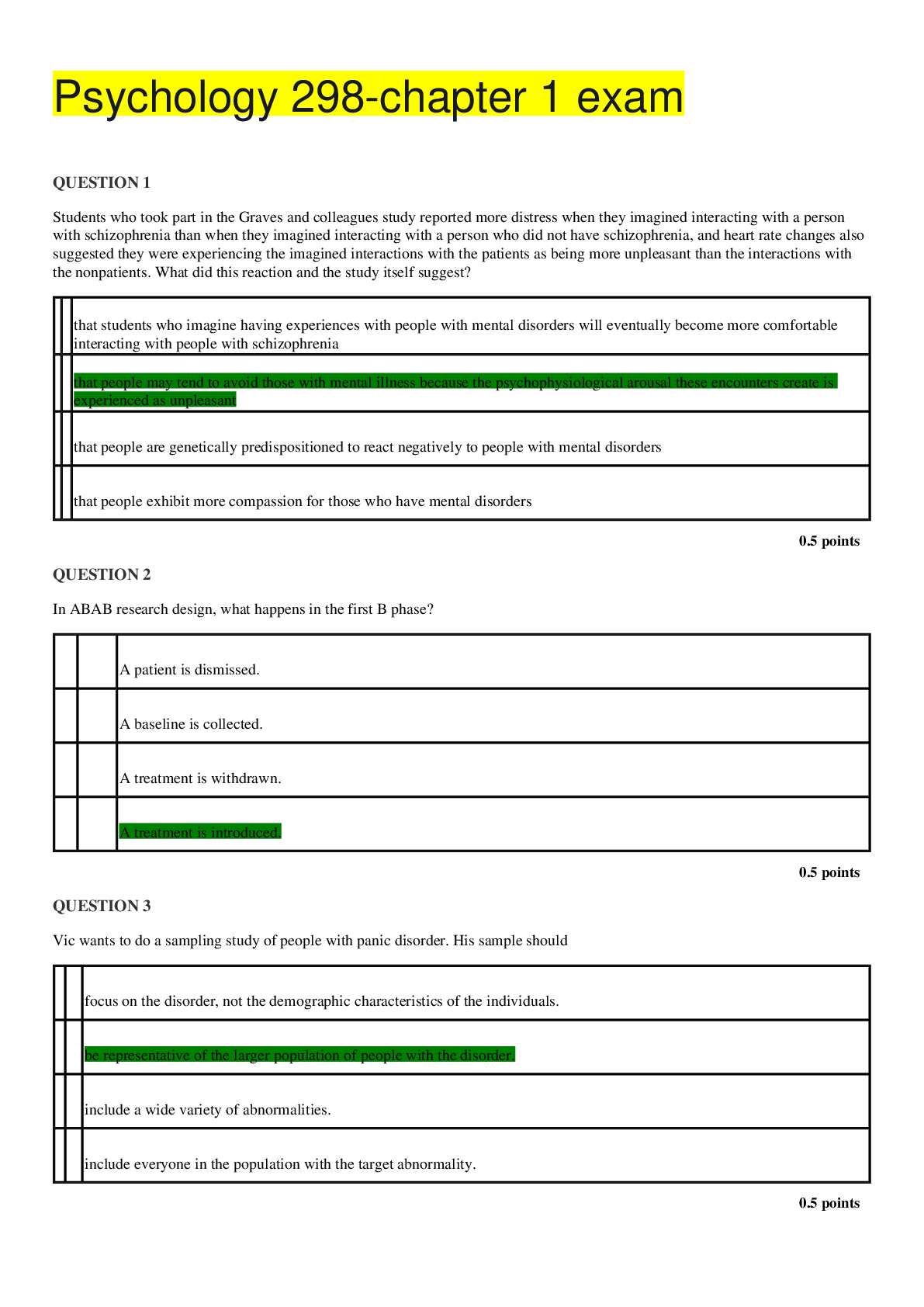




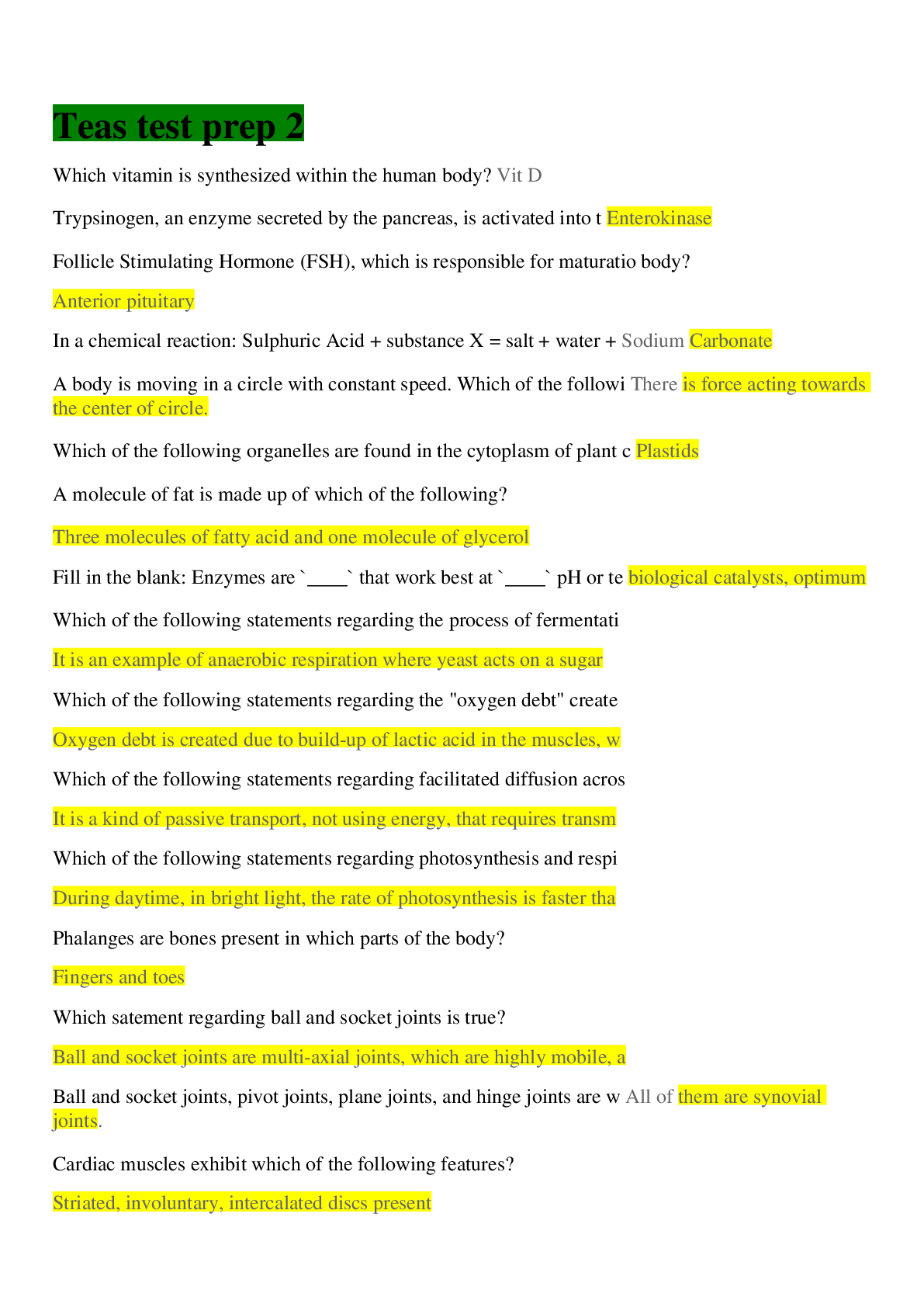

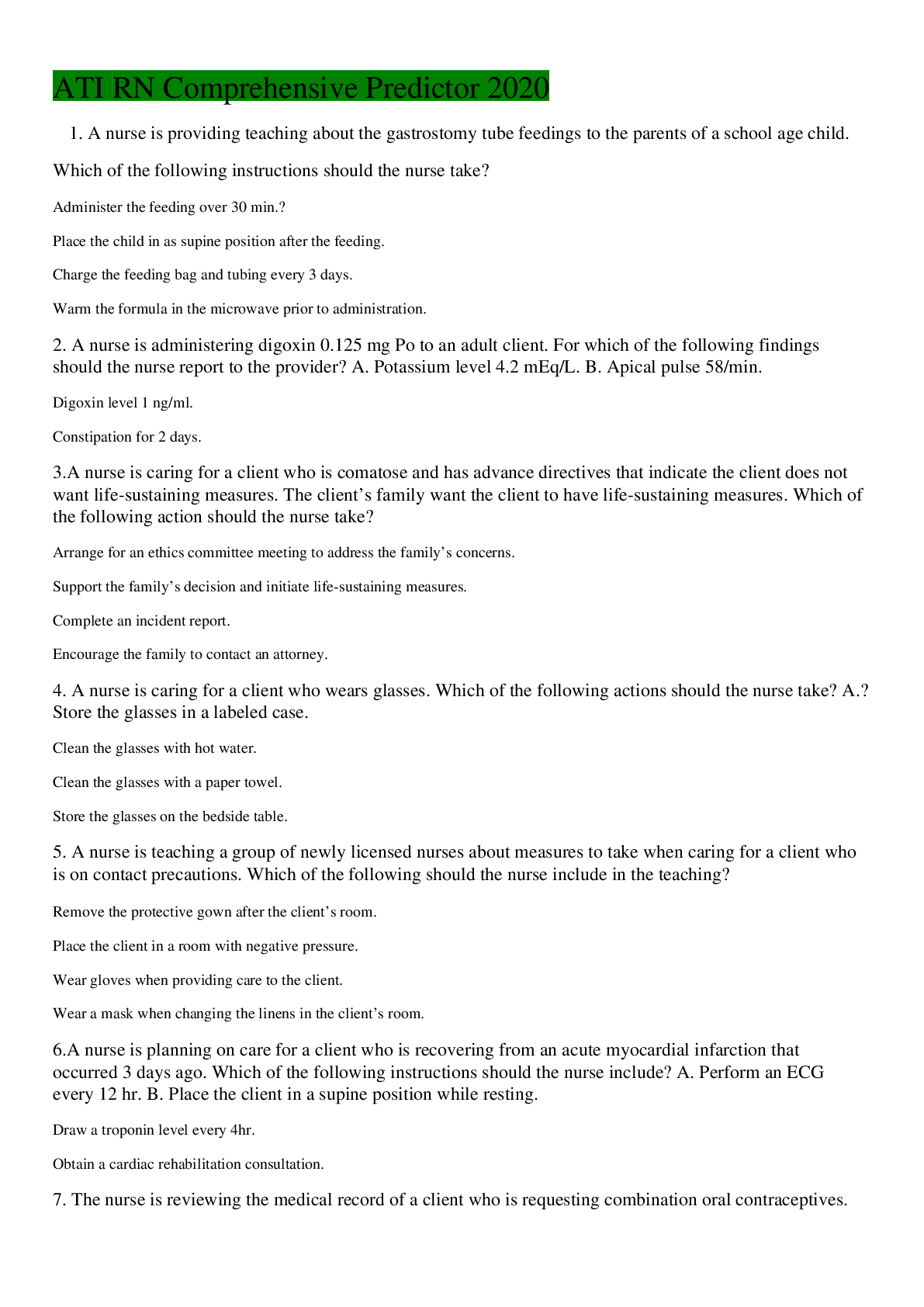



.png)




